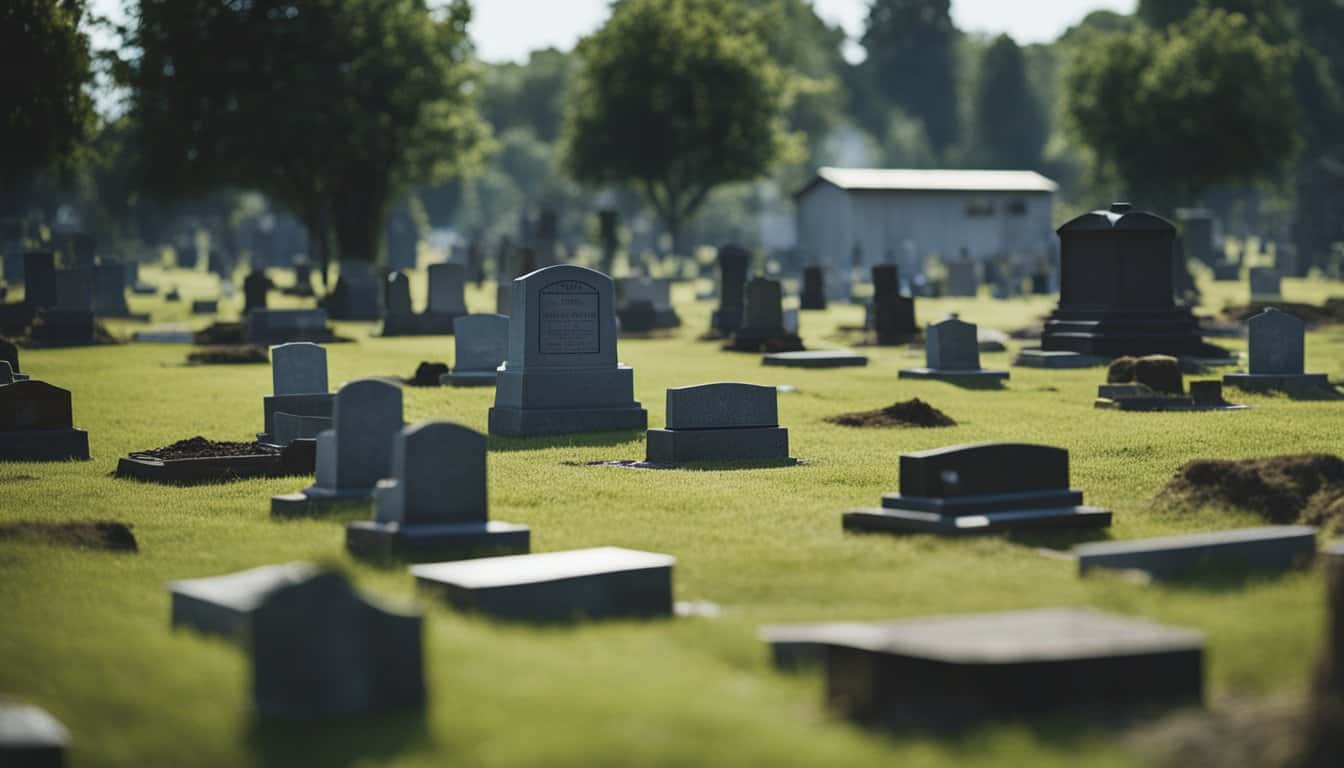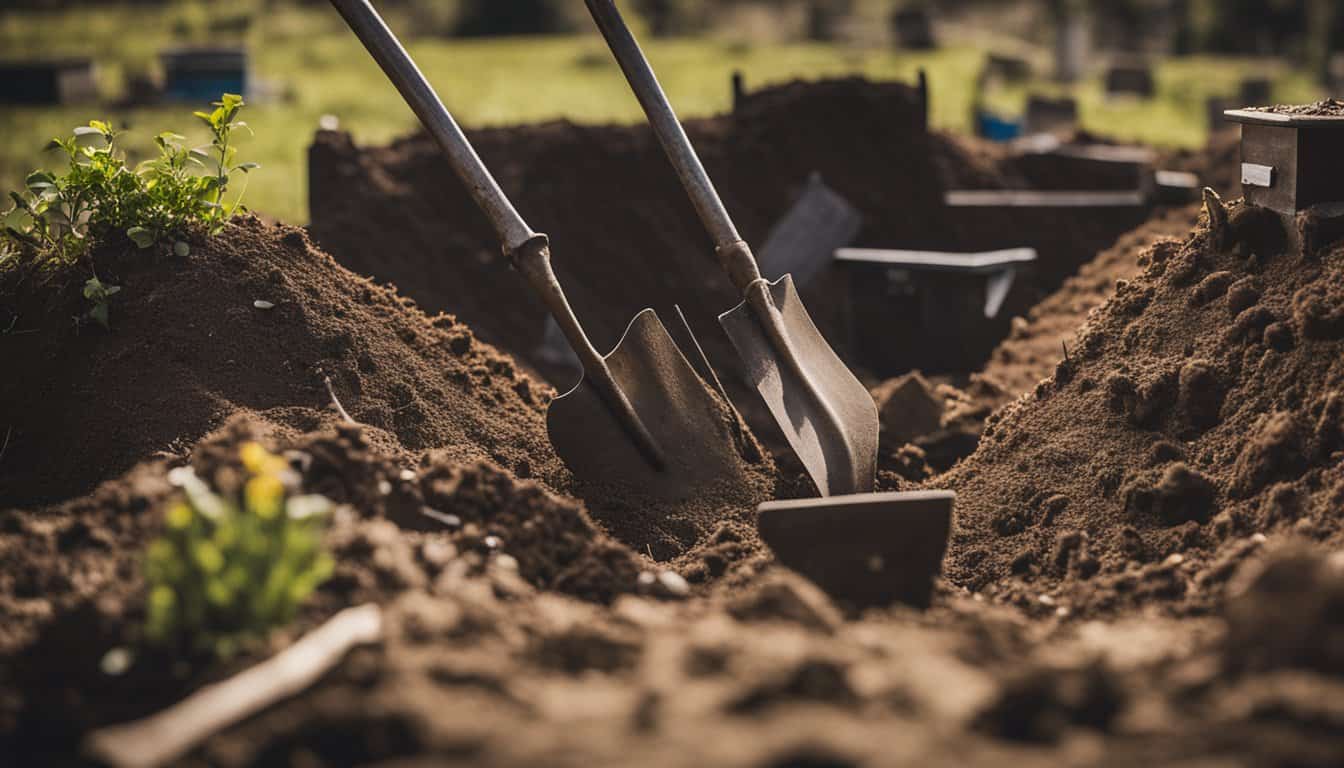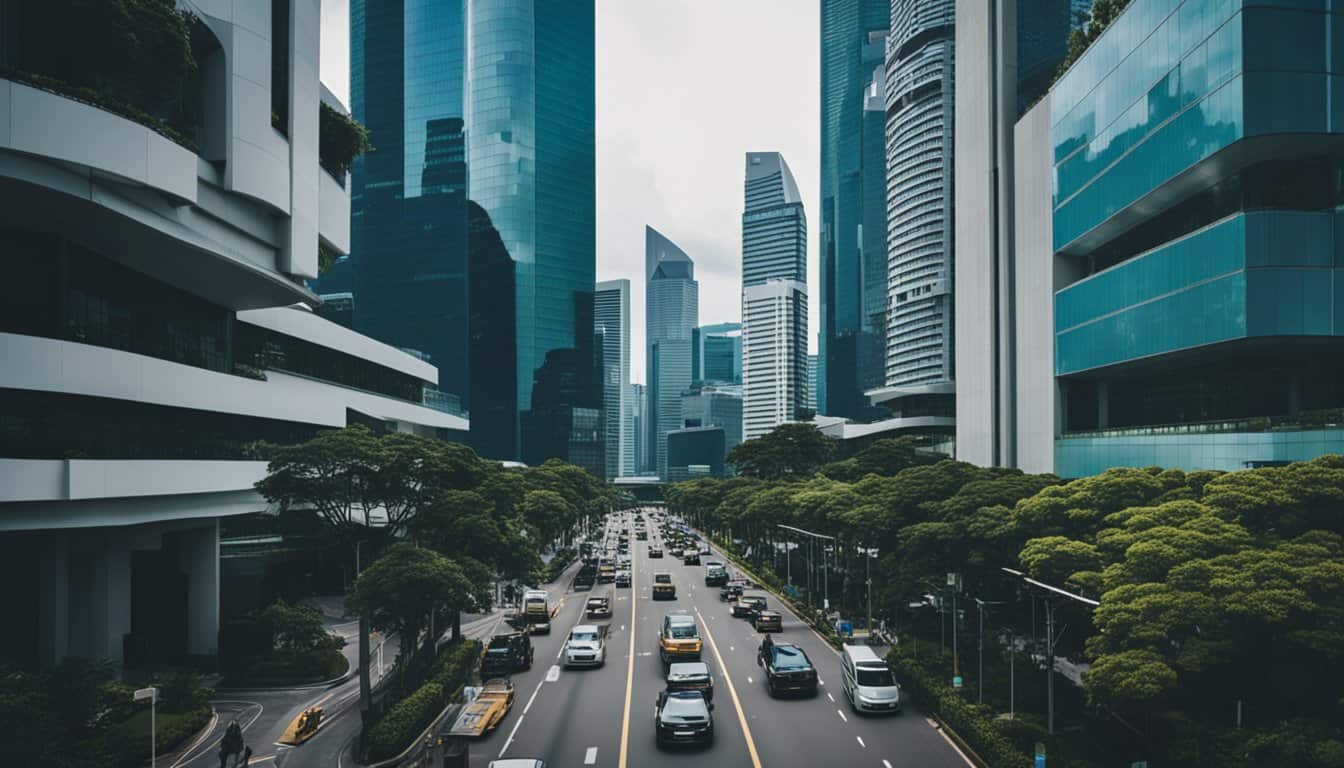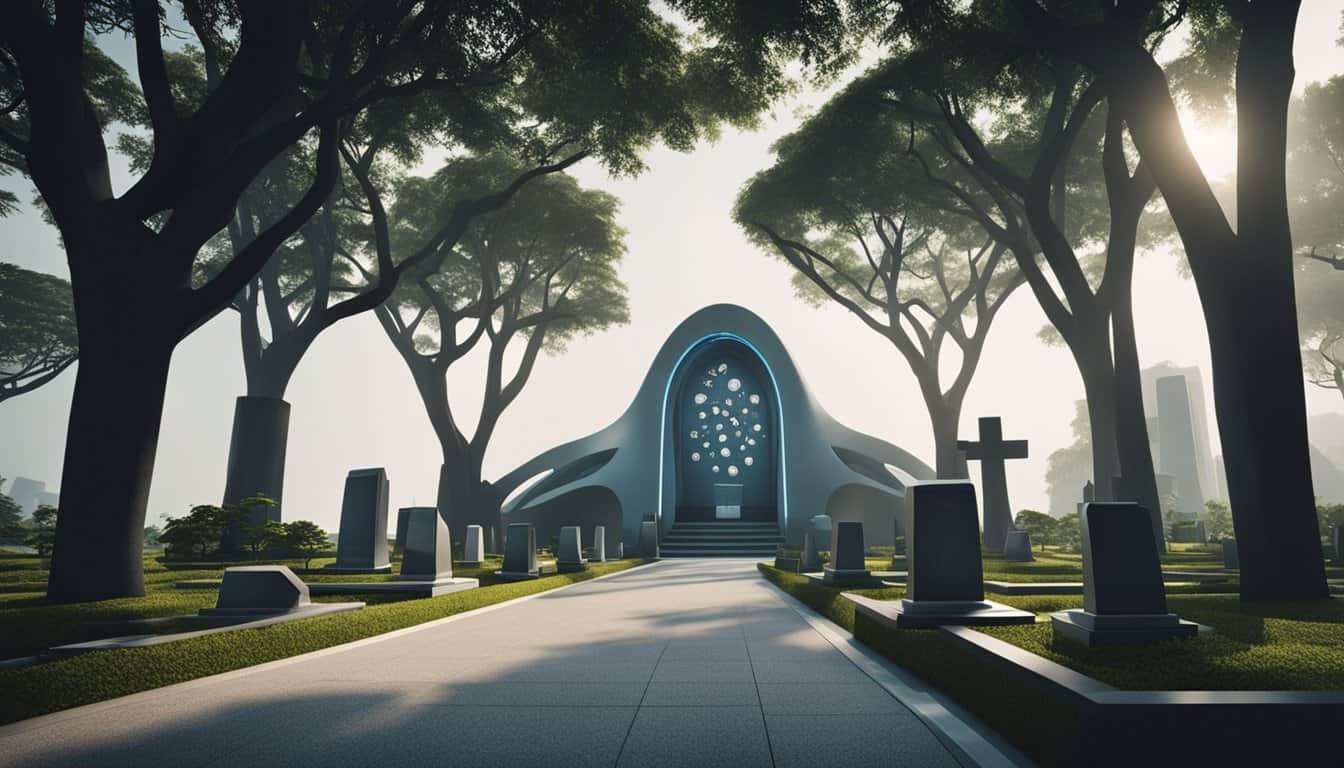If you’re looking for information about exhumation in Singapore, you’ve come to the right place. Exhumation is the process of removing a body from its burial place, and it is a necessary process for a variety of reasons. Whether you’re looking to relocate a loved one’s remains, or you’re simply curious about the process, this article will provide you with all the information you need to know.

In Singapore, exhumation is a heavily regulated process, and there are strict guidelines that must be followed. The National Environment Agency (NEA) is the government agency responsible for managing burial grounds and overseeing the exhumation process. The NEA plays a critical role in ensuring that exhumations are carried out safely and respectfully, and that the remains are properly handled and disposed of.
Key Takeaways
- Exhumation is the process of removing a body from its burial place.
- The National Environment Agency (NEA) is responsible for managing burial grounds and overseeing the exhumation process in Singapore.
- Exhumation is a heavily regulated process that must be carried out safely and respectfully.
Understanding Exhumation in Singapore
If you’re living in Singapore, you might be curious about the process of exhumation. Exhumation is the process of digging up and relocating human remains from one burial site to another. In this section, you’ll learn about the historical context of exhumation in Singapore, the land scarcity and burial policy that led to the need for exhumation, and the cultural and religious significance of exhumation.
Historical Context
Singapore has a rich history of burial practices. Before the arrival of British colonizers, the Malays and Chinese practiced different forms of burial. The Malays buried their dead in shallow graves, while the Chinese buried their dead in tombs. With the arrival of the British, Christian burial practices were introduced, and cemeteries were established.
Land Scarcity and Burial Policy
Singapore is a small island nation with limited land resources. As the population grew, the government had to prioritize land use. In 1998, the New Burial Policy was introduced, which stated that a burial ground remains valid only for up to 15 years. After that, the remains must be exhumed and cremated or relocated to another burial site. This policy was implemented to address the issue of land scarcity and to make more efficient use of available land.
Cultural and Religious Significance
Exhumation is a sensitive issue that can be influenced by cultural and religious beliefs. For example, some religions require that the body remains intact and undisturbed after burial. In Singapore, the government has made efforts to accommodate these beliefs by providing alternative options for the remains, such as columbarium niches or returning the remains to the family for keepsake.
Overall, understanding the process of exhumation in Singapore can help you appreciate the cultural and historical significance of burial practices. Whether you have a personal interest in the topic or are simply curious about Singapore’s history, learning about exhumation can be a fascinating and informative experience.
The Exhumation Process

Excited to learn about the exhumation process in Singapore? Here’s what you need to know.
Registration and Documentation
Before any exhumation can take place, there are certain registration and documentation requirements that must be met. You will need to obtain an exhumation permit from the National Environment Agency (NEA) and submit it to the relevant authorities. This permit will specify the date and time of the exhumation, as well as any other requirements that must be met.
Exhumation Services and Contractors
Once you have obtained the necessary permits and documentation, you will need to engage the services of a reputable exhumation contractor. These contractors are responsible for carrying out the exhumation process in a safe and efficient manner, and will typically have the necessary equipment and expertise to do so.
Family Members’ Involvement
If you are a family member of the deceased, you may wish to be involved in the exhumation process. Depending on the circumstances, you may be able to witness the exhumation and reinterment process, and provide input on the selection of an auspicious date and time for the exhumation. However, it is important to note that the involvement of family members in the exhumation process is subject to certain limitations and restrictions, and you should consult with the relevant authorities to determine what is possible.
That’s a brief overview of the exhumation process in Singapore. Remember to follow all relevant regulations and guidelines, and engage the services of a reputable contractor to ensure that the process is carried out safely and efficiently.
Government Regulations and NEA’s Role

If you are planning to exhume a loved one’s remains in Singapore, it is important to be aware of the government regulations and the role of the National Environment Agency (NEA). The NEA is responsible for managing post-death matters in Singapore, including exhumation of remains.
Policy Changes and Burial Period
In 1998, the Singapore government introduced the New Burial Policy to combat land scarcity by limiting the burial period to 15 years. This means that after 15 years, the remains must be exhumed and either cremated or re-interred. The NEA is responsible for enforcing this policy and ensuring that all exhumations are carried out in accordance with the law.
NEA’s Exhumation Programmes
The NEA has implemented several exhumation programmes to manage the increasing number of exhumations in Singapore. These programmes include the Choa Chu Kang Cemetery Exhumation Programme and the Mount Vernon Columbarium Re-location Programme. The NEA works closely with funeral directors and cemetery operators to ensure that these programmes are carried out smoothly and efficiently.
Legal Requirements for Exhumation
Before you can exhume a loved one’s remains in Singapore, you must obtain an exhumation permit from the NEA. The revised law requires that the exhumation must be carried out by a licensed exhumation contractor and that the contractor must comply with all NEA guidelines and regulations. Failure to comply with these regulations can result in fines or even imprisonment.
In summary, the NEA plays a crucial role in managing post-death matters in Singapore, including exhumation of remains. It is important to be aware of the government regulations and legal requirements for exhumation to ensure that the process is carried out smoothly and in accordance with the law.
Post-Exhumation Options

After exhumation, there are several options available for the remains of your loved one. Singapore offers a range of services that cater to different beliefs and preferences. Here are some of the post-exhumation options available to you.
Cremation and Columbarium Niches
Cremation is a popular choice for those who wish to dispose of their loved one’s remains in a more eco-friendly and space-efficient manner. After cremation, the ashes can be placed in an urn and stored in a columbarium niche. Columbarium niches are available in various sizes and designs, including marble urns, glass-fronted niches, and more.
Sea Burial and Eco-Friendly Choices
If you prefer a more eco-friendly option, you may consider a sea burial. This option involves scattering the ashes at sea, which is a beautiful and peaceful way to say goodbye to your loved one. Singapore offers sea burial services, which include a boat ride to the scattering site and a certificate of scattering.
Relocation and Reburial Services
If you wish to relocate your loved one’s remains, there are relocation and reburial services available in Singapore. These services involve exhuming the remains and transporting them to a new burial site or columbarium niche. Singapore offers a range of burial sites, including those for different religions and cultures.
In conclusion, after exhumation, you have several options available for the remains of your loved one. These options include cremation and columbarium niches, sea burial, and relocation and reburial services. Whatever your preference, Singapore offers a range of services that cater to different beliefs and preferences.
Choa Chu Kang Cemetery
If you’re looking for information about exhumation in Singapore, you’ll definitely want to know about Choa Chu Kang Cemetery. This cemetery is the largest in Singapore and has been in operation since the 1970s. Over the years, many people have been buried there, and now it’s time for their remains to be exhumed.
Exhumation at Singapore’s Largest Cemetery
Exhumation at Choa Chu Kang Cemetery is done in phases. This is to ensure that the process is done systematically and efficiently. The New Burial Policy introduced by the Singaporean government in 1998 limits the burial period to 15 years. As such, exhumation is necessary to make way for new burials.
Online Registration and Plot Maps
If you’re looking to claim a grave or register for exhumation, you can do so online. The registration process is straightforward, and you’ll need your SingPass to log in. Once you’ve registered, you can check the plot maps to locate the grave you want to claim. The maps are regularly updated to reflect the latest changes in the cemetery.
Muslim Cemetery Exhumation Office
If you’re looking to claim a grave or register for exhumation at the Choa Chu Kang Muslim Cemetery, you can visit the Muslim Cemetery Exhumation Office. The office is located at No. 2 Christian Cemetery Path 2 Singapore 698897. You can also call them at (65) 6795 5511 or email them at [email protected] to make an appointment.
The Choa Chu Kang Cemetery is an important part of Singapore’s history, and the exhumation process is necessary to make way for new burials. Whether you’re looking to claim a grave or register for exhumation, there are plenty of resources available to help you through the process.
Cultural and Religious Practices
When it comes to exhumation in Singapore, cultural and religious practices play a significant role. Different religions and cultures have their own beliefs and practices surrounding death and burial, and these practices are often reflected in the exhumation process. Here are some of the cultural and religious practices to keep in mind:
Rituals by Monks and Priests
If the deceased was a Buddhist or a Taoist, it is common for the family to invite a monk or a priest to perform a ritual before the exhumation. The ritual is meant to ensure that the soul of the deceased is at peace and to seek blessings for the family. The monk or priest may also offer guidance and support to the family during this difficult time.
Muslim Exhumation and Fatwa
In Islam, exhumation is only allowed under certain circumstances, such as when the body needs to be moved to a Muslim cemetery or when the body needs to be examined for legal purposes. However, even in these cases, the exhumation must be carried out in accordance with Islamic law. The Islamic Religious Council of Singapore (MUIS) issues fatwas (religious rulings) on matters related to exhumation to ensure that the process is carried out in a manner that is consistent with Islamic beliefs and practices.
Respecting Diverse Beliefs
Singapore is home to various religious and cultural groups, each with its own beliefs and practices surrounding death and burial. It is important to respect these beliefs and practices when it comes to exhumation. For example, in some cultures, it is customary to scatter the ashes of the deceased in the sea or in a specific location. In other cultures, it is important to keep the ashes in an urn or to bury them in a specific location. It is important to understand and respect these beliefs and practices when carrying out an exhumation.
Support and Services
Dealing with the loss of a loved one can be a challenging time, and it is important to have the right support and services available to help you through this difficult period. In Singapore, there are a number of funeral homes and exhumation services that can provide you with the support and assistance you need.
Funeral Homes and Embalming
Funeral homes provide a range of services to help you plan and organize a funeral or memorial service for your loved one. They can assist with everything from arranging the burial or cremation to providing caskets, urns, and other funeral-related items. Some of the most popular funeral homes in Singapore include Harmony Funeral Care and Embrace Funeral Services.
Embalming is another service that funeral homes can provide. This involves the preservation of the body through the use of chemicals and other techniques. It can be useful if you want to hold an open-casket funeral or if you need to transport the body over a long distance. However, it is important to note that embalming is not always necessary or recommended.
Casket and Urn Providers
Caskets and urns are an important part of any funeral or memorial service. They provide a dignified and respectful way to transport and store the remains of your loved one. There are a number of casket and urn providers in Singapore, including those that specialize in eco-friendly and sustainable options.
Counseling and Emotional Support
Dealing with the loss of a loved one can be an emotional and overwhelming experience. It is important to have access to counseling and emotional support services to help you cope with your feelings and emotions. Many funeral homes and exhumation services offer these services, and there are also a number of independent providers available.
It is important to choose a funeral home or exhumation service that you feel comfortable with and that meets your needs. Be sure to read their privacy policy and ask any questions you may have before making a decision. With the right support and services, you can honor the memory of your loved one and find comfort during this difficult time.
Future of Burial Spaces in Singapore

As Singapore continues to face land scarcity, innovations in burial grounds have become necessary to ensure that the deceased are given dignified final resting places. The Mandai Crematorium and Columbarium is one such innovation that has been implemented to address this issue. However, anticipating changes in legislation is also important to ensure that the deceased are treated with respect and care.
Innovations in Burial Grounds
The Mandai Crematorium and Columbarium is a state-of-the-art facility that offers a range of services for the deceased and their families. The facility features a crematorium, columbarium, and a niche relocation service. The columbarium niches are designed to be spacious and comfortable, with ample natural light and ventilation. The niche relocation service allows families to relocate the remains of their loved ones to other columbarium niches within the facility.
Mandai Crematorium and Columbarium
The Mandai Crematorium and Columbarium is a modern facility that reflects Singapore’s commitment to innovation and sustainability. The facility is designed to be energy-efficient and environmentally friendly, with features such as solar panels and rainwater harvesting systems. The crematorium uses advanced technology to ensure that the cremation process is efficient and respectful.
Anticipating Changes in Legislation
As Singapore’s population continues to grow, changes in legislation are inevitable. It is important to anticipate these changes and ensure that the deceased are treated with respect and care. The New Burial Policy introduced in 1998 limits burial to 15 years, after which the graves are exhumed. This policy aimed to address the issue of land scarcity in Singapore. However, it is important to ensure that the exhumation process is carried out with sensitivity and respect.
In conclusion, the future of burial spaces in Singapore is exciting, with innovations such as the Mandai Crematorium and Columbarium being implemented to address the issue of land scarcity. Anticipating changes in legislation is also important to ensure that the deceased are treated with respect and care.
Frequently Asked Questions
How thrilling is it to discover the cost of exhumation in Singapore?
Discovering the cost of exhumation in Singapore can be an exciting experience. The cost of exhumation varies depending on the cemetery, the type of grave, and the duration since the burial. For example, the cost of exhumation for a Muslim cemetery ranges from SGD 1070 to SGD 2140. You can contact the cemetery office or a funeral service provider to get an accurate estimate of the cost.
What electrifying events occur post-exhumation in Singapore?
After exhumation, the remains are reinterred in a new grave or cremated. The family can then hold a funeral service to pay their respects. Some families choose to scatter the ashes in a meaningful location or keep them in an urn. The post-exhumation process can be emotional, but it provides closure for the family.
When is the most exhilarating time to conduct an exhumation?
The most exhilarating time to conduct an exhumation is during the day when there is sufficient light. Exhumations are typically conducted on weekdays, and the cemetery office will inform you of the date and time. It is important to note that exhumations are not allowed on public holidays.
Why is the night time so mysteriously perfect for exhumations?
Exhumations are not conducted during the night as it is considered disrespectful to the deceased and their family. The cemetery is closed at night, and only authorized personnel are allowed to enter. Exhumations are typically conducted during the day when there is sufficient light.
What are the vibrant steps involved in the exhumation process for a Muslim cemetery?
The exhumation process for a Muslim cemetery involves several steps, including obtaining permission from the cemetery office, preparing the site, digging up the grave, and reinterment of the remains. The cemetery office will provide a list of authorized funeral service providers who can assist with the exhumation process.
Can you feel the energy finding a loved one’s resting place with Pusara Abadi’s map?
Pusara Abadi is a map of Muslim graves at Choa Chu Kang Cemetery. The map provides the location of the graves and the deceased’s name. While finding a loved one’s resting place can be emotional, Pusara Abadi’s map can provide comfort and closure.




